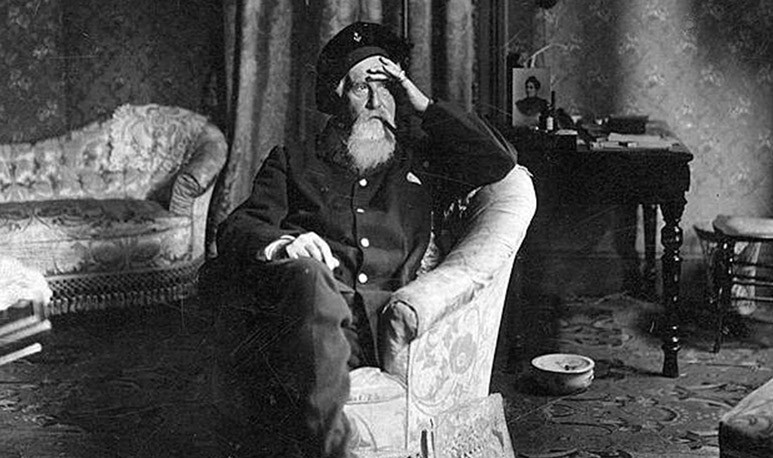
A Short Translation from Una excursión a los indios ranqueles (A Visit to the Ranquel Indians)
—
by eugen_blick
At 25, we are the prey to much silly ceremony. Lacking white gloves as cool as a lettuce, is a severe setback, and can be the cause for the handsomest lad to not marrying. Not a few are those who skip meal many times, and sacrifice their stomachs for the sake of social etiquette!
At 40, when cold winds and ice have begun to wither our complexion and whiten our hair, our needs increase — what wouldn't one do for a cold cream can, or a pack of cosmetics?
Later on, it's all the same — gloves or no gloves, retouchings or no retouch — "A monkey in silk is a monkey no less."
The simplest, most unsophisticated, the most unassuming, is the best course: no spicy food, no truffles. Stew is the only nourishment that makes no harm, easily digestible, no upset.
[Lucio V. Mansilla (1831-1913) was a general, politician and diplomat, mainly known today for this book where he depicts the life of Ranquel Indians in Patagonia, a few years before the so-called Conquista del desierto, a military campaign that — with the aid of the Remington — extended the frontiers of the Argentinean state in the 19thC.]
____________________________________________
A los veinticinco años, somos víctimas de un sinnúmero de superfluidades. No tener guantes blancos, frescos como una lechuga, es una gran contrariedad, y puede ser causa de que el mancebo más cumplido pierda casamiento. ¡Cuántos dejaron de comer muchas veces, y sacrificaron su estómago en aras del buen tono!
A los cuarenta años, cuando el cierzo y el hielo del invierno de la vida han comenzado a marchitar la tez y a blanquear los cabellos, las necesidades crecen, por un bote de cold cream, o por un paquete de cosmético, ¿qué no se hace?
Más tarde, todo es lo mismo; con guantes o sin guantes, con retoques o sin ellos, «la mona aunque se vista de seda mona se queda».
Lo más sencillo, lo más simple, lo más inocente es lo mejor: nada de picantes, nada de trufas. El puchero es lo único que no hace daño, que no indigesta, que no irrita.
[Lucio V. Mansilla (1831-1913) fue un militar, político y diplomático, recordado hoy en día principalmente por este libro, en el que describe la vida de los indios ranqueles de la Patagonia, unos años antes de la llamada Conquista del desierto, campaña militar que —con la ayuda del fusil Remington— amplió las fronteras del Estado argentino a fines del s.XIX.]
Interesting. This expresses a world view that is not so common today. It seems to express a view all men must marry. Also, I was surprised to read that men used "cold cream cans" or " cosmetics" . . . these are usually used by some women, but less often by men.
As a diplomatic, Mansilla spent some years in Europe. I suppose much of this has to do with his experience there. And it goes without saying that the upper classes in Buenos Aires (to which he belonged of course) were eager to assimilate every European novelty back then
Very interesting publication, @eugen_blick. I am a passionate reader of everything from Argentina. Emigration in both directions between Argentina and Spain has filled our family life with people on both sides of the Atlantic. To hear the ‘voseo’ is to feel good.
Thanks for the explanation. Yes, in the 19th century many upper class Europeans wanted to keep their skin white. Perhaps this related to a racial prejudice: white = upper class / swarthy or dark = lower class.